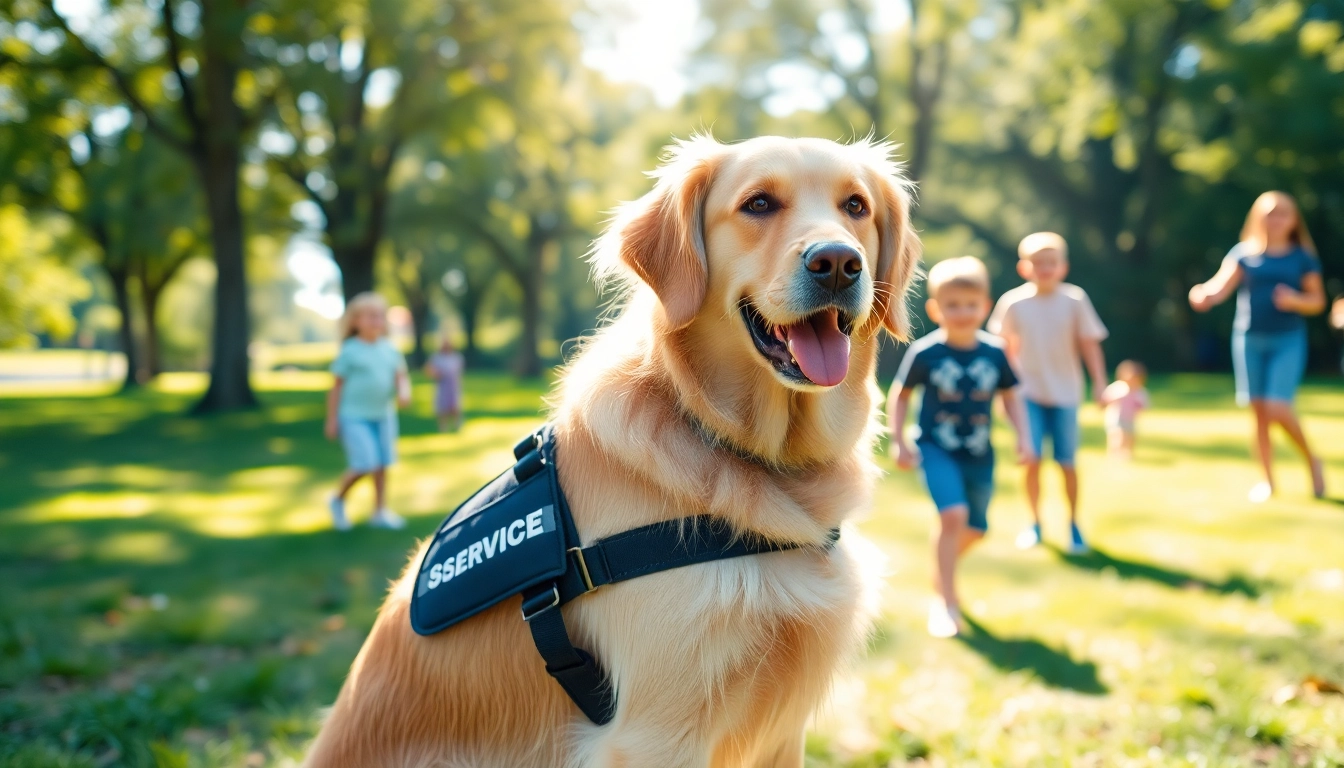
Understanding Autism Service Dogs for Sale
Autism service dogs are a lifeline for many families, providing essential support and companionship for children on the autism spectrum. These dogs undergo specific training to assist with challenges that can arise from autism, and for many parents, finding the right autism service dogs for sale is a critical step in enhancing the quality of life for their child. This comprehensive guide will walk you through the nuances of autism service dogs, their benefits, and important considerations when looking to bring one into your home.
What Are Autism Service Dogs?
Autism service dogs are specially trained canines that aid individuals with autism in navigating daily life. Their training typically includes social interaction facilitation, behavioral interruption, and safety protocols. These dogs are equipped to help with various challenges faced by their handlers, such as sensory overload, anxiety, and difficulties with social interactions. Service dogs are legally recognized under the Americans with Disabilities Act (ADA), which affords them certain privileges and rights in public spaces.
How Autism Service Dogs Help Families
Families with autistic members often face significant challenges, such as meltdowns in public places, difficulty with communication, and social anxiety. Autism service dogs can be an incredible asset in these situations as they provide both emotional and physical support. Their presence can help ease anxiety during stressful situations and provide comfort to children who may feel overwhelmed. Additionally, these dogs can assist in preventing wandering, a common concern for parents of children with autism. The bond that forms between a child and a service dog can also foster social skills, helping children learn how to interact with their peers more effectively.
Types of Autism Service Dogs Available
The types of autism service dogs can vary, often depending on the specific needs of the child. Some dogs are trained to provide tactile stimulation during moments of distress, while others may have training focused on social interaction facilitation or safety techniques. Additionally, dogs can be tailored to suit specific age groups or individual temperaments, allowing families to find the perfect match for their child’s unique personality and requirements.
Key Considerations Before Purchasing Autism Service Dogs for Sale
Evaluating Your Needs and Lifestyle
Before obtaining an autism service dog, it’s vital to evaluate your family’s specific needs and lifestyle. Consider aspects such as your child’s age, the severity of their condition, and how a service dog could realistically fit into your daily routine. Reflect on any existing pets you may have and your family’s ability to provide the necessary training and care. Understanding these factors will help streamline the process of finding the right service dog and ensure that you choose one that will adequately meet your child’s needs.
Understanding Training and Certification
Not all service dogs are created equal, which is why understanding the training processes and certification requirements is crucial. A reputable service dog should undergo a comprehensive training program that covers basic commands, social behavior, and specific tasks tailored to assist with autism-related challenges. Certification ensures that the dog meets specific standards of behavior and reliability, giving families confidence in their ability to assist day-to-day.
Costs Involved in Acquiring a Service Dog
Acquiring an autism service dog can be a significant financial investment. Prices can vary widely based on factors such as the dog’s training level, breed, age, and any specialized training for individual needs. It’s important to factor in ongoing costs, including food, veterinary care, and potential training refreshers. Some families may find grants or nonprofit organizations that provide financial assistance for service dogs, and exploring these options can ease the burden of costs.
Finding Reputable Sources for Autism Service Dogs for Sale
Researching Credible Breeders and Trainers
Finding a reputable source for purchasing an autism service dog is paramount. Look for organizations or breeders that have a proven track record and positive testimonials from families. Accreditation from recognized service dog organizations can also indicate a commitment to ethical breeding and training practices. Take time to read reviews, speak with other families, and gather recommendations to ensure you find a dependable and trustworthy provider.
Questions to Ask Potential Providers
When speaking with potential providers of autism service dogs, asking targeted questions can help you gauge their suitability. Inquire about the dog’s training regimen, the specific tasks they can perform, and their methods of socialization and behavioral assessment. Additionally, request details on the return policy, health guarantees, and the history of the dog. These inquiries can provide insight into both the dog’s training quality and the provider’s commitment to your family’s needs.
Visiting Training Centers and Facilities
Whenever possible, visiting the facilities where the dogs are trained can provide invaluable insight into the training environment and methods. Observe how dogs interact with trainers and potential handlers, and feel free to ask questions concerning the dog’s socialization and behavior. A reputable facility will be open and transparent about their operations, and this visit can help solidify your decision-making process.
Training and Caring for Your Autism Service Dog
Essential Training for Service Dogs
After acquiring an autism service dog, ongoing training is vital to ensure the animal continues to perform its tasks effectively. Essential training typically includes socialization with various environments and individuals, reinforcement of basic commands, and exposure to different stimuli that may be encountered in daily life. Family members should also participate in training sessions, fostering a strong partnership between the dog and all household members.
Daily Care and Health Maintenance
Proper care is crucial for the well-being of a service dog. This includes regular veterinary check-ups, a balanced diet, and daily exercise to keep them healthy and engaged. Grooming routines, including brushing and bathing, should also be established to maintain hygiene. Regular bonding time, such as play and training, can enhance both the dog’s performance and the emotional connection shared with the family.
Building a Strong Bond with Your Dog
The bond between a service dog and its handler hinges on trust, mutual respect, and love. Spending quality time together, engaging in play, and practicing routines can help strengthen this connection. Positive reinforcement training techniques, where the dog is rewarded for desired behaviors, can also significantly improve responsiveness and reinforce the bond between the service dog and your family.
Success Stories: Impact of Autism Service Dogs in Lives
Personal Testimonials from Families
The joy and benefits of having an autism service dog frequently shine through personal testimonials shared by families. These stories often highlight transformations in children’s confidence, communication skills, and social interactions. Many parents report that their children are calmer, more engaged, and feel a greater sense of safety with the service dog by their side, allowing them to navigate public spaces more confidently.
Positive Outcomes and Transformations
In addition to emotional benefits, autism service dogs can lead to significant positive outcomes in children’s behaviors. Many families witness a decrease in anxiety levels, fewer meltdowns in social situations, and improved engagement with peers and adults. The presence of a service dog can encourage children to participate in activities they may have previously avoided, fostering independence and resilience.
Long-Term Benefits of Autism Service Dogs
Beyond immediate benefits, the long-term advantages of having an autism service dog can be profound. These dogs can provide lifelong companionship, often becoming integral members of the family. As children grow, the skill sets learned and the emotional support provided can significantly impact their development. Furthermore, the training and routines established with the service dog can translate into greater social and life skills as children transition into adulthood, equipping them for a more independent and fulfilled life.






